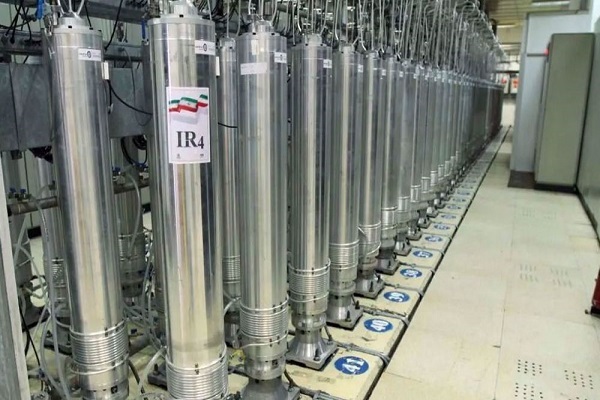
TABNAK, Nov, 26 : “Iran’s approach towards the IAEA is to interact in a way that it protects our national interests. It will be based on three principles already mentioned by the Supreme Leader and are dignity, wisdom and benefits,” she told reporters in a weekly press conference.
“We interact with everyone, including the International Atomic Energy Agency, and Iran acts within the framework of the rights and obligations specified under the Non-Proliferation Treaty, but in this case, naturally, we have a set of new centrifuges on our agenda which is normal,” she continued.
“We are obliged to act in accordance with (our) nation’s rights to use nuclear energy peacefully for medicine, agriculture and similar purposes.”
She also called the maximum pressure approach aiming at increasing sanctions against Iran a ‘failed approach’.
On November 22, Iran decided to activate new advanced centrifuges, rejecting an International Atomic Energy Agency (IAEA) Board of Governors resolution that rebuked Tehran despite its offer of new concessions.
The Atomic Energy Organization of Iran (AEOI) and the Iranian Foreign Ministry released a joint statement last Friday, criticizing the IAEA's resolution as politically driven, unrealistic, and unjust.
A significant number of advanced centrifuges will be deployed in response to the unconstructive move, the statement read.
The resolution, passed by the IAEA's Board of Governors with a vote of 19 to 3 and 12 abstentions, accused Iran of “insufficient cooperation” and demanded a comprehensive report on its nuclear activities by spring 2025.
The statement added that despite taking new measures to accelerate its nuclear program, Iran will maintain its technical cooperation with the IAEA based on previous agreements.
The AEOI’s statement accused the UK, France, Germany, and the U.S. of advancing political agendas under the guise of nuclear concerns, especially in light of their past failures to uphold agreements like the Joint Comprehensive Plan of Action (JCPOA).
The JCPOA was established in 2015 between Iran and the P5+1 countries. It imposed restrictions on Iran's nuclear activities in return for the termination of Western sanctions. However, the accord collapsed in 2018 when U.S. President Donald Trump decided to withdraw the United States from the agreement and reimpose sanctions on Iran.